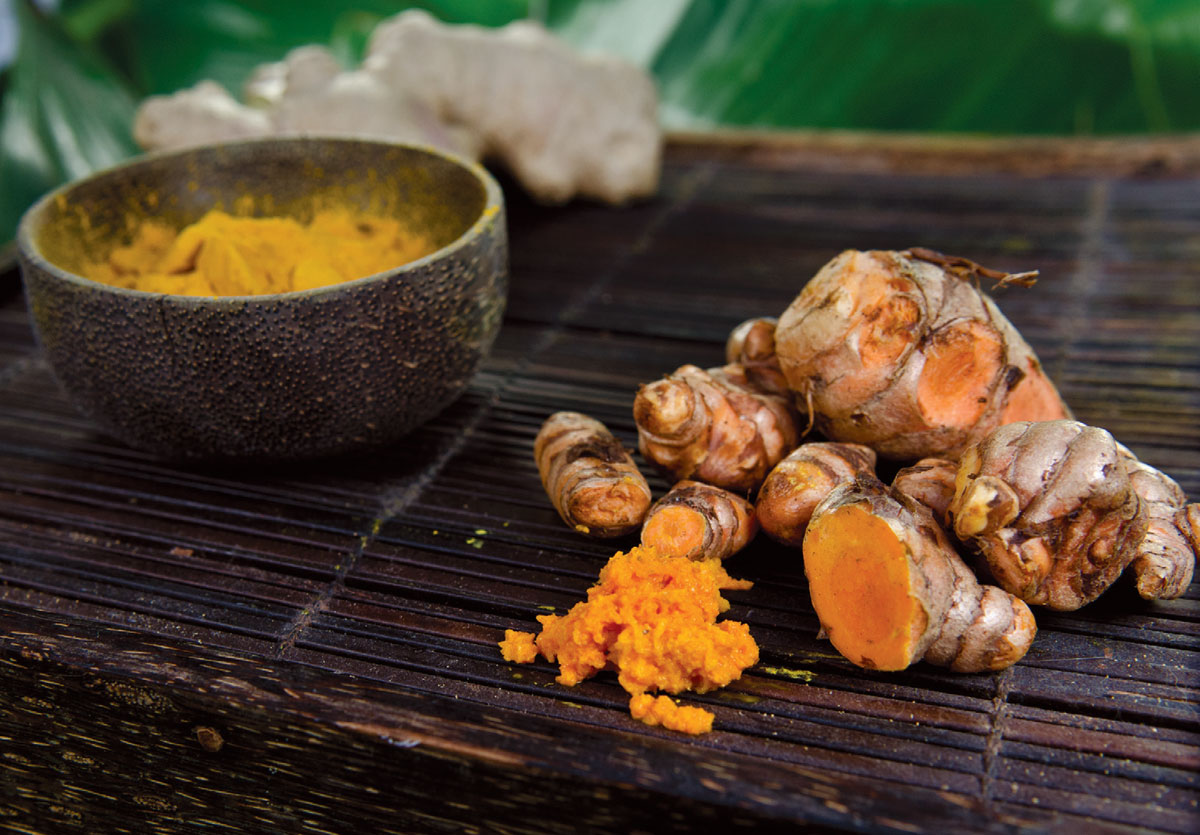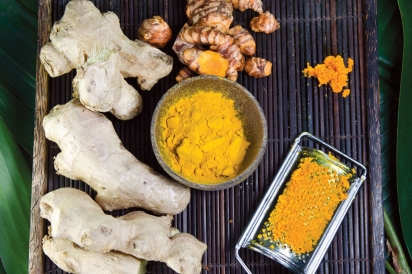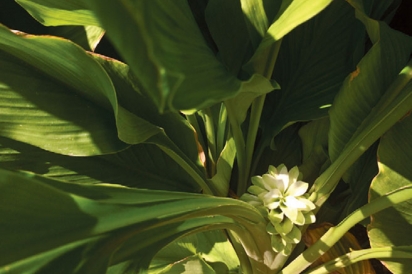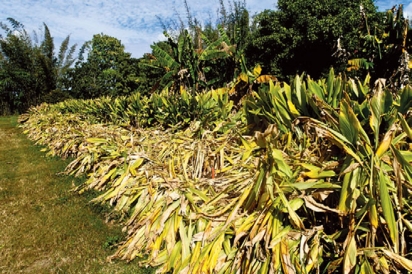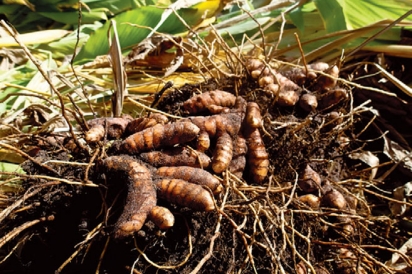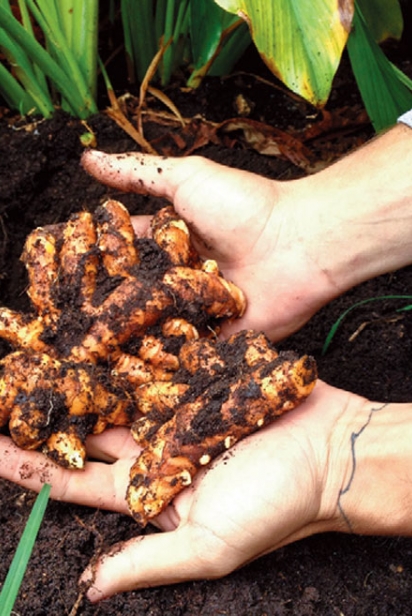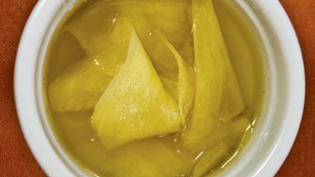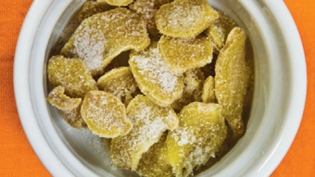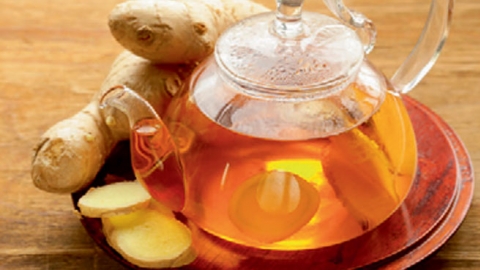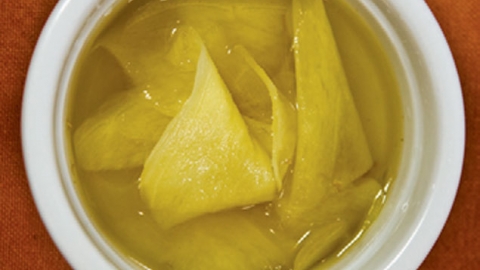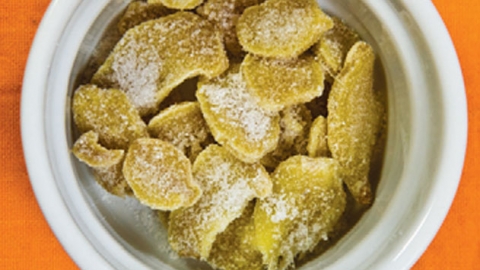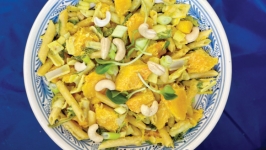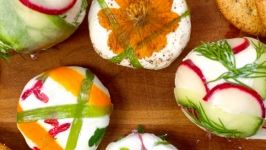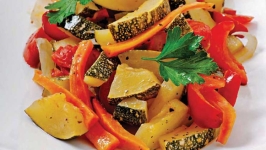Rooting for Turmeric and Ginger
Pungent and peppery, these aromatic members of the Zingiberaceae family are widely used in Asian cooking.
As a dried spice, bright yellow turmeric adds color to Indian dishes, while powdered ginger packs a punch in spice cookies and gingerbread.
Used fresh – grated, finely diced, juiced – these rhizomes bring a distinctive burst of fragrant flavor to multiple dishes. Rich in manganese and iron, they are used in folk medicine to settle the stomach and treat inflammation.
With patience, you can grow them easily in South Florida.
SEVEN YEARS AGO, GROWER JOHN GOSS OF JG’S Tropical Plants started collecting edible gingers.
One of the few vendors of edible ginger (Zingiber officinale), turmeric (Curcuma longa) and galangal in South Florida, Goss loves their health benefits as well as their versatility, extending beyond the tender roots. Ginger foliage tastes somewhat like lemongrass, he says. “You can cut young shoots to add to salad and smoothies,” he says. He adds peeled turmeric to smoothies, which “produces beautiful flowers, too.” Galangal flowers taste like mild habanero peppers, he says, while the stem has a licorice taste.
Growing your own turmeric and ginger takes patience because they go dormant part of the year, Goss says.
Start with plants or rhizomes from an organic market, not the supermarket, he says: “What you find there, Chinese edible ginger, is sprayed to keep them from sprouting.”
Use containers for ginger plants, or plant them directly in the ground under shade or filtered sunlight, using a loose potting mix rich in organic material. Goss grows his starts in 100 percent coir (coconut fiber) and fertilizes with worm castings.
If you plant in the spring, by fall the leaves will start to turn yellow and go dormant through the spring.
If you’re growing in a container, take it away from the elements, Goss says. “Put it in the corner of the garage. Don’t water it. Let it go to sleep. In March or April, you will see new shoots start to emerge. Reintroduce to light gently in the backyard once the cold spells are part,” he advises.
In the first year, you may see immature rhizomes above the surface, but it’s better to wait until the second year. As plants mature and grow to 4-5 feet, you can pull up rhizomes and cut off a chunk or slice off pieces as needed.
While it takes time to grow your own ginger and turmeric, Goss says, “you have to start somewhere. So have some fun growing your own healthy roots!”
Find JG’s Tropical Plants on Facebook or call 772-532-6648. John will be at the Garden & Bonsai Festival at Flamingo Gardens in Davie Feb. 21.
HOW TO USE FRESH TURMERIC AND GINGER ROOT
WHERE TO FIND IT
Some South Florida farms are starting to grow turmeric. LNB Farms carries it at the Pinecrest Farmers Market on Sundays and the Arsht Center market on Monday nights. Three Sisters Farm in Homestead (threesistersfarm.com) and Help Yourself in Key West (helpyourselffoods.com) also sells fresh organic turmeric.
BUYING AND USING
Look for firm rhizomes. Peel the skin – use the tip of a spoon to get around the bumps. Grate using a microplane. Some recipes call for a fine dice or julienne. Pay attention: Bright orange turmeric can color your fingers and cutting board.
STORING
Store ginger and turmeric in resealable plastic bags. Goss does not recommend storing rhizomes in the refrigerator because they start to dehydrate. Freeze rhizomes in airtight plastic bags.
PRESERVE YOUR GINGER
Make your own pickled ginger to accompany sushi. Homemade candied ginger is more flavorful than commercial brands. Add it to cakes and cookies or just munch on it for a snappy snack.


